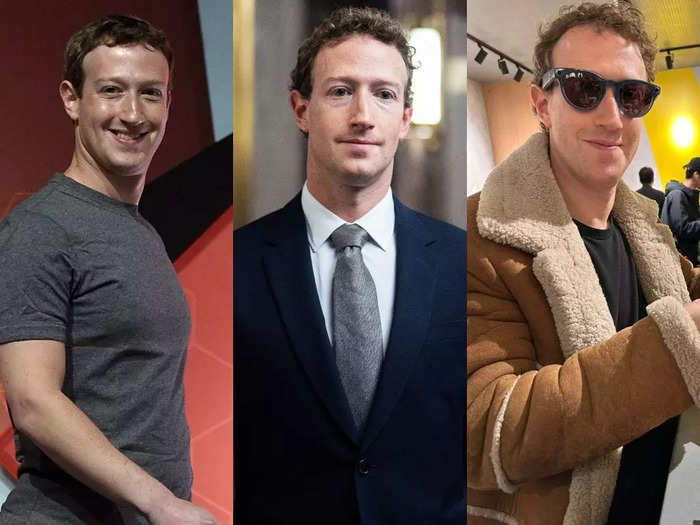This old 2020 email from Mark Zuckerberg might just be the explanation for his extreme makeover | Business Insider India

🌈 Abstract
The article discusses the transformation of Meta CEO Mark Zuckerberg's public image, his efforts to make the company more relatable to millennials, and the broader tensions between AI companies and the creative industry.
🙋 Q&A
[01] Zuckerberg's Image Transformation
1. What was Zuckerberg's goal in transforming his public image?
- Zuckerberg wanted to make himself and Meta more relatable to millennials, as outlined in his email exchanges with colleagues and board member Peter Thiel in January 2020.
- Zuckerberg believed he was "the most well-known person of [his] generation" and wanted to consider how he could "show up" and communicate better to appeal to this demographic.
2. How has Zuckerberg's fashion choices changed as part of this image makeover?
- Zuckerberg has ditched his once-standard uniform of gray t-shirts for shearling brown jackets and gold chains.
- This new fashion sense has helped Zuckerberg go viral on social media with his striking outfit choices, such as wearing a tuxedo while hydrofoiling on Independence Day.
3. What impact has Zuckerberg's image transformation had?
- The makeover has delivered a PR boost for Zuckerberg, who was not always seen as the coolest guy in tech, especially after the Cambridge Analytica scandal.
- Spotify founder Daniel Ek noted that Zuckerberg's new public persona seems "a lot more authentic" and that he has "a new fire in the belly" and is acting more responsibly.
[02] Tensions Between AI and the Creative Industry
1. What are some examples of tech executives dismissing the impact of AI on creative jobs?
- OpenAI CTO Mira Murati suggested that some creative jobs "maybe shouldn't have been there in the first place" if the AI-generated content is not high quality.
- Adobe faced backlash from artists after its Terms of Use update suggested the company could use creator content to train its AI models.
2. Why might tech executives have a dismissive attitude towards creative jobs?
- Professor Olivier Toubia suggests this could stem from "insensitivity or snobbism", where tech executives may not have much respect for "softer" creative skills compared to technical skills.
3. How are AI companies and the creative industry competing for the same revenue?
- Toubia explains this is a "zero-sum game" where any money going to AI companies for creative content production will likely be at the expense of traditional creative producers.
- This could lead to fewer jobs available for creators looking to make a living from their work, even if AI helps more established creators become more productive.
Shared by Daniel Chen ·
© 2024 NewMotor Inc.